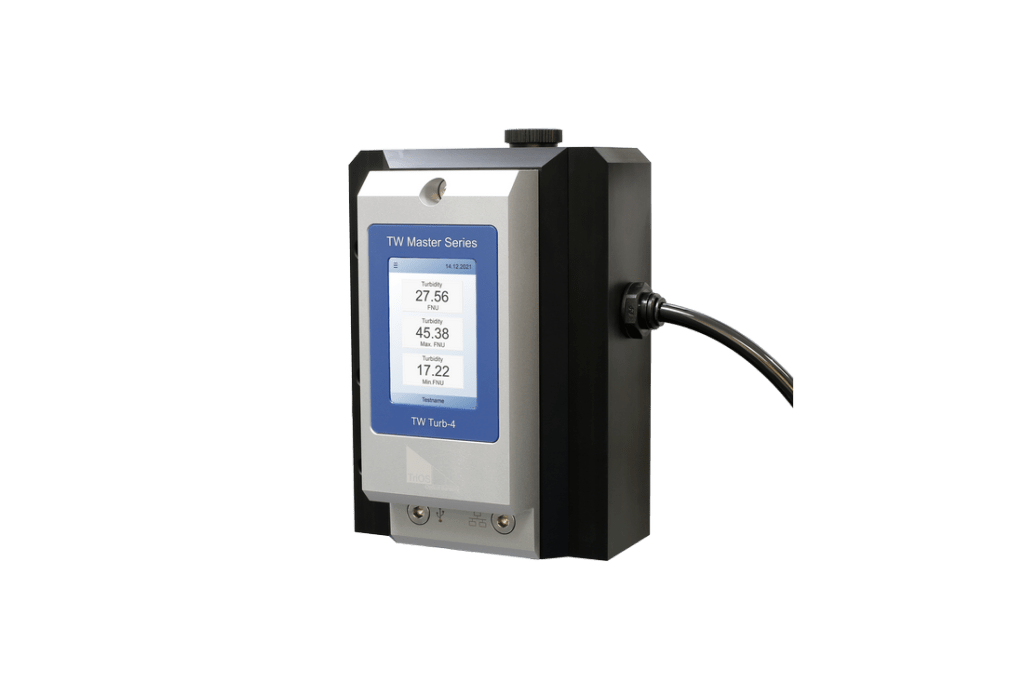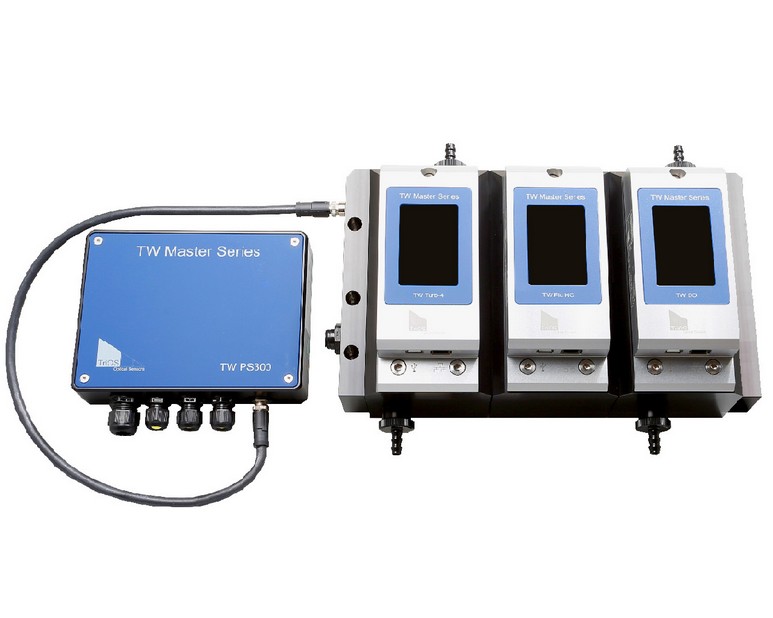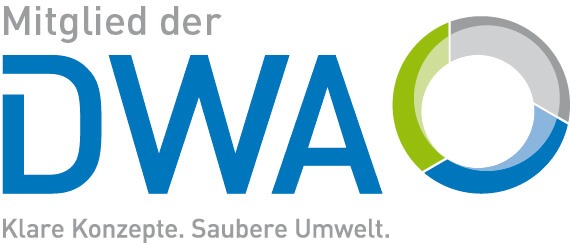The First Module of the TW Master Series!
The first Module of our TW Master series is now available.

TriOS Mess- und Datentechnik GmbH recently presented the TW Turb-4 module for their TW Master Series. In its core the TW Turb-4 is a turbidity sensor that is especially made for drinking water applications. With our high measurement accuracy of ± (5 % + 0.01) and low detection limit of 0.005 FNU you are able to detect even the smallest changes in turbidity. Our low detection limit is possible through our 90° light scattering method. The module is powered through our new power supply the TW PS300.

This module is the first of many of our new sensor series that is made for the drinking water applications and delivers a wide range of awesome features like our dynamic connection system that allows you to swap modules in seconds with no need of a total disassembly.
All modules of the TW Master series are highly customizable and offer an easy-to-use graphical interface. The module itself is like the flow cells detachable in seconds which allows a fast cleaning and maintenance.
All modules are capable of using Modbus TCP and RTU through USB or RJ-45 which allows the communication in a local network as well as on device configuration. It allows you to be able to use the sensors even in big automatization projects without any danger or complicated preparations.

The hardware itself is sized 160 x 280 x 108 mm which allows it to be used in even the smallest spaces. For specific requirements of substances, we also offer individual TriOS panels for your TW Master device collection.
In future the following parameters will follow:
- Nitrate (N-NO₃)
- SAC₂₅₄
- pH / electrical conductivity
- DO
- Free chlorine
- Polycyclic aromatic hydrocarbons (PAH)
- Tryptophan
*The offer of parameters is not final and may varies in the future*


